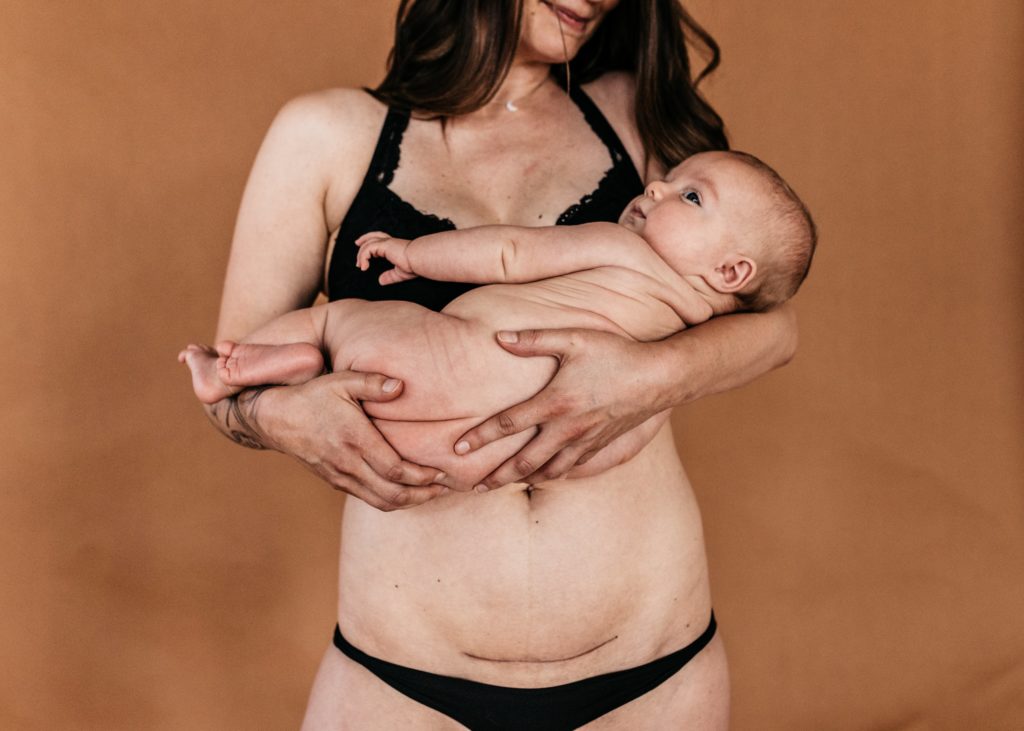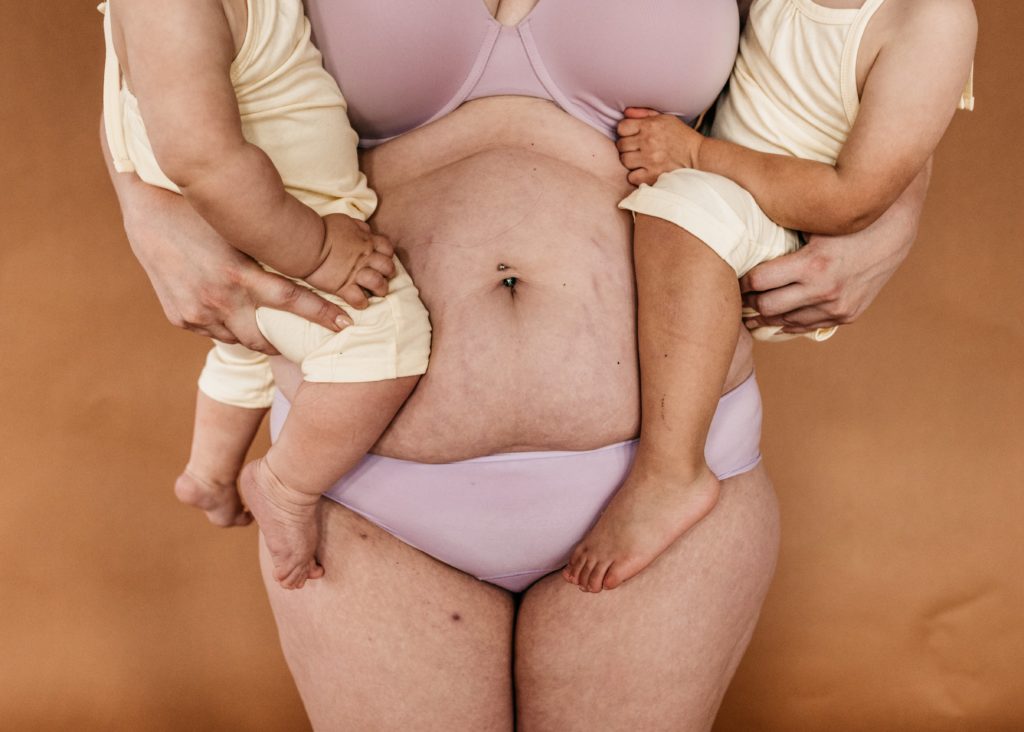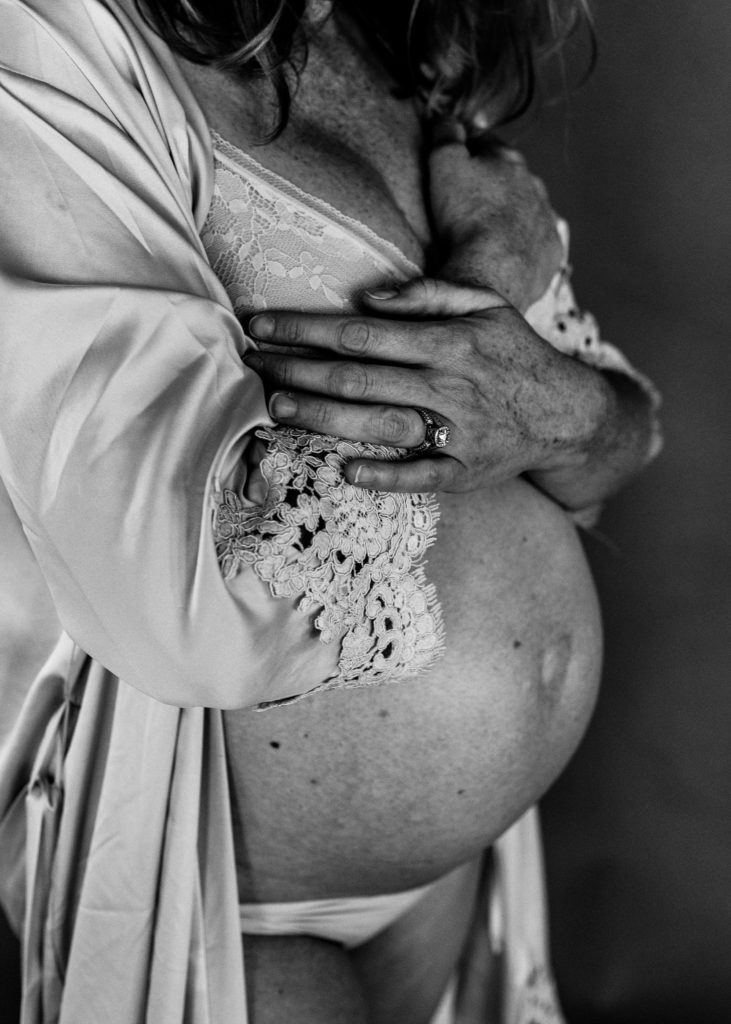Maternal Mental Health Awareness | Little Bug Photography
When you first decided to grow your family, I bet lots of people told you about the diaper brands they recommend, your doctor probably told you about what foods to avoid, and family gave you tons of advice about parenting. What I bet no one told were these five important facts about maternal mental health.
In case you didn’t know, in addition to being a family and newborn photographer here in Cincinnati, I am also a licensed independent social worker with a certification in perinatal mental health (the period spanning pregnancy to the first year postpartum). I am passionate about the holistic well-being of mothers, partners, and their babies, and I believe education about maternal mental health is integral to achieving healthier families.
So below I’m going to share five facts you need to know, no matter what stage of motherhood you are in.

The risk of developing a postpartum mood disorder increases throughout your first year of motherhood.
A lot of women know there is a risk of developing postpartum depression in the first few weeks or months postpartum. But later…six, seven, eight months after birth…when a woman starts experiencing sadness, lack of interest in activities, a sense of disconnect from her baby, herself, or those around her, she often doesn’t even think of postpartum depression as a possible cause.
In fact the risk of postpartum depression (PPD) increases in the first year after a baby is born. In the first three months, a woman’s risk of developing PPD is about 1 in 7, but later in the year that risk increases to 1 in 5. In the first year, so many pressures can arise (a return to the workplace, pressures on a marriage or partnership, increased stress around having multiple children) that in our society, women can feel less supported over time.
If at any time in the first year of motherhood, in pregnancy, or beyond you don’t quite feel “like yourself” please reach out to a mental health professional to talk about your concerns.
Having scary thoughts about harm to your baby does not mean you’re a bad mom.
Let’s start with the facts–one out of ten moms will have intrusive thoughts about harm coming to their baby. These thoughts can be terrifying in the moment; especially when the thought that pops into your head is of yourself or someone you love hurting your baby. So many moms experience these thoughts and feel shame around them, confused about where they come from.
When mothers experience these intrusive thoughts (and that’s what they are–thoughts that are intruding into your mind), researchers have found that the area that lights up in their brain is the part responsible for protection, or hypervigilance. Rather than indicating being a bad parent, these thoughts often indicate that your mama bear instincts are in hyperdrive, finding risk of harm even where there isn’t any.
Many parents worry about sharing these thoughts with a mental health professional. They’re scared they’ll be reported to child protective services or judged by their therapist or doctor. A qualified perinatal specialist will assess not the thoughts but how you respond to them; a parent who is disgusted or terrified by these thoughts is known to be ego dystonic and a low risk of hurting their baby. It’s when the thoughts are ego syntonic (they make sense to the parent, as they fit into delusions or hallucinations) that a provider becomes concerned. To find a professional that is qualified, check out the Postpartum Support International directory here.

“Going natural” isn’t always what’s best for mama or baby.
Words like natural or holistic can sometimes be misconstrued, especially when it comes to psychotropic medication (the fancy term for any medication that treats a mental health disorder). Parents who are experiencing mental health symptoms often feel pressure to handle them without medication, in the belief that medication will cause harm to their baby (either in pregnancy or in breastmilk).
The truth is that there is a risk of exposure to baby–both to medication and from exposure to depression or anxiety. Research shows that a newborn with a depressed mother actually develops a brain wave pattern that mimics the depressed mama, which affects brain development and the development of the attachment relationship. There is no shame in this for the mama who is depressed–if she had diabetes and there were worries of how this would affect the baby, what would a doctor advise? To get on medication to minimize the symptoms of diabetes, of course!
When a mother has symptoms of a perinatal mental health concern, it is most important for mama and baby to be well. Instead of focusing on getting on the lowest dose possible or getting off medication altogether, the focus (together with your prescriber) should be on how to make you feel your best and be the best possible version of you.

Postpartum depression isn’t just for caregivers who have given birth.
While mothers who give birth certainly are at risk for perinatal depression, anxiety, or other concerns, other family members and supports are at risk as well. One out of ten fathers will experience depression after the birth of a child (the research isn’t as available on same sex partners). Adoptive parents commonly experience PADS (post-adoptive depression syndrome). No matter how your family has grown, it is stressful to add a new addition. This stress, coupled with sleep deprivation and the loss of consistency, is a lot for any person to manage.
It’s important for all caretakers to monitor themselves (and to monitor each other) for changes in their personality or ability to take care of themselves (or those around them). Everyone needs to make time for self-care and care of their relationship, and if either parent is experiencing symptoms that are distressing, it’s important to recognize that it might be more than just stress. Seek help; you won’t regret it.

You don’t always know what’s wrong.
For most mothers experiencing a perinatal health condition, they don’t have thoughts like “I’m depressed” or “I’m anxious.” Instead they have thoughts like:
- “I’m failing as a mom.”
- “I wonder if my family would be better off without me.”
- “How does everyone else manage this while I’m drowning?”
- “I don’t know if I can keep my baby safe.”
- “I don’t know if I can do this any longer.”
These thoughts are terrifying, and in a society that doesn’t do a good job of supporting caregivers or families, it can feel isolating and overwhelming. But please know that these thoughts are symptoms of a larger issue, and that you can feel better. You deserve to feel better.
Want to learn more about perinatal mental health? Read some frequently asked questions here. If you are experiencing symptoms that feel overwhelming and you’re not sure how you’ll make it through, please reach out for help immediately (either to a trusted family member or friend or by calling 911). To get more resources or talk to someone who can help, call 1-800-944-4773 or text “Help” to 800-944-4773.
It will get better. And you deserve to feel your best; even if you just feel “a little off,” you deserve to take care of yourself and talk to someone who can help.